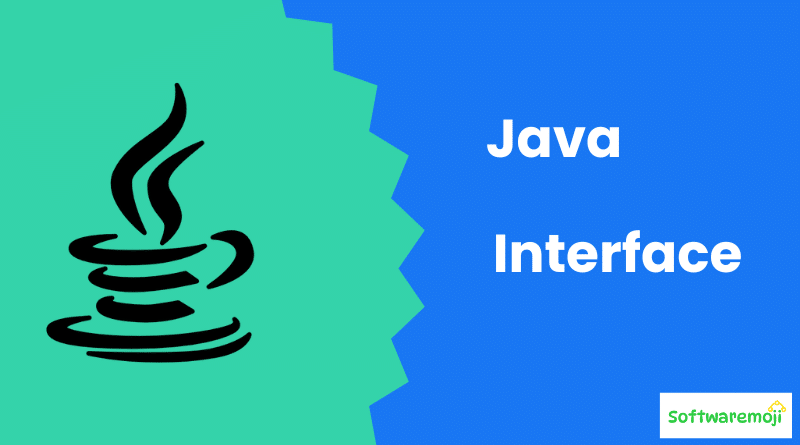
👉Java Interface:
➡️Java Interface is a blueprint for a class that defines abstract methods and constants.
➡️Interfaces support abstraction in Java, allowing developers to focus on “what to do” rather than “how to do it.
➡️Multiple inheritance in Java is achieved using interfaces, overcoming the limitations of single class inheritance.
➡️Interfaces define contracts that implementing classes must follow, ensuring consistency across implementations.
➡️Java Interface vs Abstract Class is a common interview question—understanding the difference is vital.
➡️Functional interfaces enable Lambda expressions in Java, introduced in Java 8.
➡️Marker interfaces in Java (like Serializable) do not have methods but provide metadata to JVM.
➡️Interface methods are implicitly public and abstract—no need to declare them explicitly.
➡️Java 8 introduced default and static methods in interfaces, enhancing flexibility.
➡️Interfaces support polymorphism by allowing objects to be accessed through interface references.
Interface segregation principle (SOLID) recommends many client-specific interfaces over one general-purpose interface. Interfaces are key for mocking in unit tests, helping in better test-driven development (TDD).Interface-based programming is central to Java OOP, promoting clean architecture and design. Use interfaces in API design to define standard behaviors across different modules. Design patterns like Strategy, Observer, and Factory often rely on interfaces in Java.
Java Interface can extend multiple other interfaces, enabling rich design patterns.
👉What is an Interface in Java?
An interface in Java is a blueprint for a class that contains abstract methods and static constants. It defines a contract that any implementing class must follow. Unlike classes, interfaces do not contain method implementations—only method signatures.
👉Key Features of Java Interfaces:-
✔ 100% abstract (before Java 8)
✔ Can contain default and static methods (Java 8 onwards)
✔ Supports multiple inheritance
✔ Cannot have instance variables.
✔ Helps achieve loose coupling
👉Syntax of an Interface in Java:-
javainterface Animal {
void makeSound(); // Abstract method
}
A class can implement an interface using the implements keyword:
javaclass Dog implements Animal {
public void makeSound() {
System.out.println("Dog barks");
}
}
👉Example: Implementing an Interface in Java:-
Let’s look at a practical example to understand how interfaces work in Java:
java// Defining an interface
interface Pet {
void play();
}
// Implementing the interface
class Dog implements Pet {
public void play() {
System.out.println("Dog is playing");
}
public static void main(String[] args) {
Pet myPet = new Dog();
myPet.play();
}
}
Output:
csharpDog is playing
👉Multiple Inheritance Using Interfaces:-
Java does not support multiple inheritance with classes but allows it with interfaces:
javainterface Animal {
void eat();
}
interface Bird {
void fly();
}
// A class implementing multiple interfaces
class Sparrow implements Animal, Bird {
public void eat() {
System.out.println("Sparrow eats grains");
}
public void fly() {
System.out.println("Sparrow is flying");
}
}
👉Interface vs Abstract Class: When to Use What?
| Feature | Interface | Abstract Class |
|---|---|---|
| Method Implementation | Cannot have method implementations (before Java 8) | Can have both abstract and concrete methods |
| Constructor | Not allowed | Allowed |
| Inheritance | A class can implement multiple interfaces | A class can extend only one abstract class |
| Purpose | Defines behavior (what a class should do) | Defines a base class (a common blueprint) |
✅ Use an Interface when multiple classes share behavior but are unrelated.
✅ Use an Abstract Class when classes share common functionality.
👉Must-Know Facts About Interfaces in Java:-
✔ A class must implement all methods of an interface.
✔ Interfaces support default and static methods (Java 8+).
✔ An interface can extend multiple other interfaces.
✔ Interface variables are public, static, and final by default.
✔ An interface cannot implement another interface (it extends instead).
👉Conclusion:-
Interfaces in Java play a crucial role in achieving abstraction, loose coupling, and multiple inheritance. They help design scalable and maintainable applications. By understanding when and how to use them, developers can write more efficient and modular code.
Would you like to explore more advanced topics like functional interfaces, default methods, and real-world examples? 🚀.
